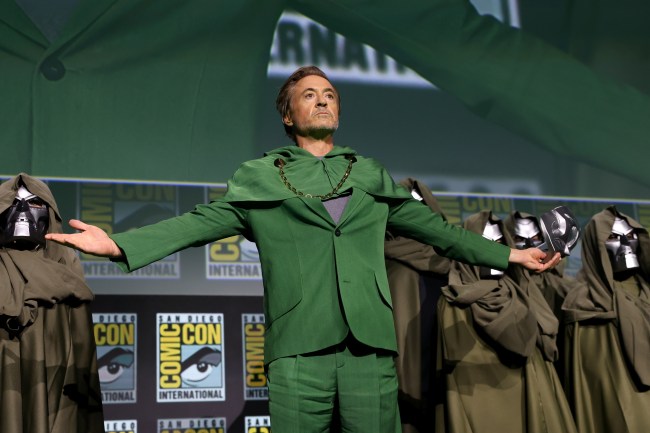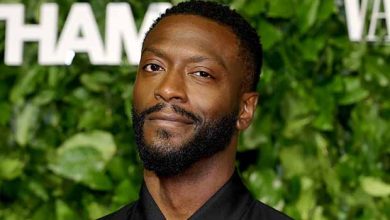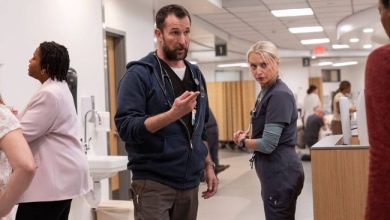Marvel’s Big Reset: Blade, X-Men Recasting, and Future Plans

Marvel Studios is undergoing a significant transformation as it navigates the future of its cinematic universe. With new projects on the horizon and a commitment to quality storytelling, fans are eager to learn what’s next for their favorite characters.
Marvel’s Big Reset: Insights from Kevin Feige
Marvel Studios President Kevin Feige provided an insightful look into the MCU’s evolving strategy, addressing fan concerns and teasing what lies ahead for Marvel’s iconic franchises. In a detailed discussion with journalists ahead of Fantastic Four: First Steps, Feige reflected on the studio’s recent struggles with oversaturation, outlined steps being taken to refocus the MCU, and revealed exciting updates on several high-profile projects. “It’s traditionally a five-year plan,” he stated. “I think it goes to 2032 right now.”
Mahershala Ali’s Blade Still Slicing Forward
Fans have been eagerly anticipating Mahershala Ali‘s debut as the iconic vampire slayer in Blade, but Feige acknowledged that the production has faced multiple setbacks. Initially announced in 2019, the project experienced delays due to script challenges and changes in directors. Feige confirmed that the retooled Blade will now be set in the modern day, emphasizing Marvel’s commitment to delivering an “insanely great” film rather than rushing a subpar version. While no director is currently attached, Ali remains enthusiastic, stating, “I’m ready. Let them know I’m ready.” Despite delays, Blade remains a priority as Marvel refocuses its creative process.
Recasting Legacy Characters Like Tony Stark and X-Men Mutants
Feige confirmed that following Avengers: Secret Wars in 2027, Marvel plans to introduce fresh faces for legacy characters like the X-Men and, eventually, Tony Stark and Steve Rogers. While the iconic Patrick Stewart and Ian McKellen will reprise their roles in Avengers: Doomsday, the upcoming X-Men films directed by Jake Schreier will feature an all-new cast. Feige likened recasting Robert Downey Jr.‘s Tony Stark to other franchises, saying, “It’s hard … but how are they going to ever replace Sean Connery [as James Bond], right?” These recasting decisions align with Secret Wars resetting the MCU’s timeline to create new beginnings for future storytelling.
Miles Morales Won’t Be Joining the MCU Anytime Soon
Despite intense fan demand for a live-action Miles Morales, Feige revealed that Marvel has been asked to “stay away” from the character pending the completion of Sony’s Spider-Verse animated trilogy. With Spider-Man: Beyond the Spider-Verse slated for 2027, any live-action integration of Miles into the MCU will be delayed until after Sony concludes its animated plans. While disappointing for fans, Feige indicated Marvel’s respect for Sony’s storytelling autonomy and a willingness to wait for the right moment. He emphasized that diversity remains important, stating, “Marvel represents the world outside your window.”
See More ...
Doctor Doom Overthrows Kang as MCU’s Next Big Villain
Jonathan Majors’ legal troubles and lukewarm audience reception to his Kang the Conqueror in Ant-Man and the Wasp: Quantumania prompted Marvel to pivot toward Doctor Doom as its new central villain. Feige praised Downey’s portrayal of Doom in Avengers: Doomsday, highlighting the actor’s connection to Doom’s decades-long comic legacy. Feige insisted the decision wasn’t solely reactionary, stating that Marvel recognized Kang lacked the weight of a universe-defining antagonist even before events affecting Majors unfolded.
Marvel Moves Overseas for Big Productions
Feige addressed why the massive Avengers: Doomsday and Secret Wars productions are relocating overseas to London’s Pinewood Studios rather than staying in conventional U.S. hubs. While generous U.K. subsidies play a role in the move, the decision ultimately comes down to securing stage space amid Hollywood’s production pressures. Feige predicted future films would again lean toward U.S.-based production hubs, such as Atlanta and New York, but this shift underscores the industry-wide trend of productions moving away from Hollywood.
Scaling Back for Quality: Less TV and Fewer Films
Feige openly acknowledged that Marvel’s doubling of content since Avengers: Endgame created a problem of “quantity trumping quality.” As a solution, the studio plans to streamline production, limiting feature films to three annually and scaling back TV shows to just one live-action series per year. In a notable shift, Marvel TV will return to standalone storytelling, disallowing crossover pressure that requires viewers to follow every project just to stay caught up. It’s part of Marvel’s effort to make its offerings less intimidating and accessible to casual fans.
As Marvel resets its towering franchise, which has earned more than $31 billion worldwide, Feige appears optimistic about returning the MCU to its roots of bold storytelling. By prioritizing focused projects, reducing financial pressure, and leaning into accessibility without alienating diverse characters, Marvel may yet find its footing — and audiences may rediscover their love for its stories.




